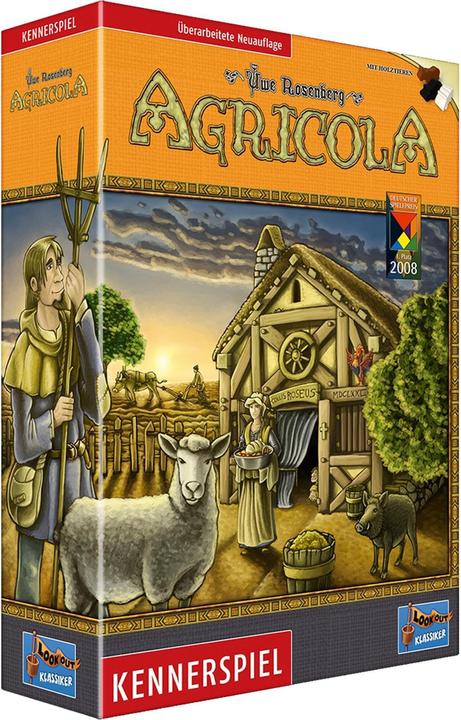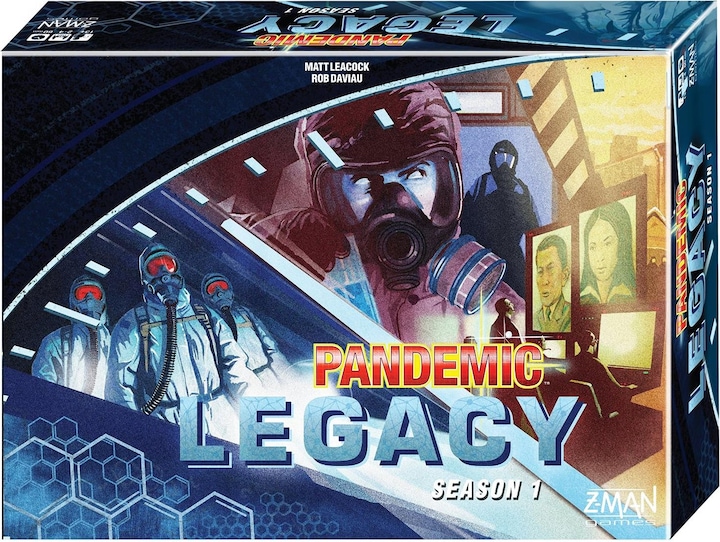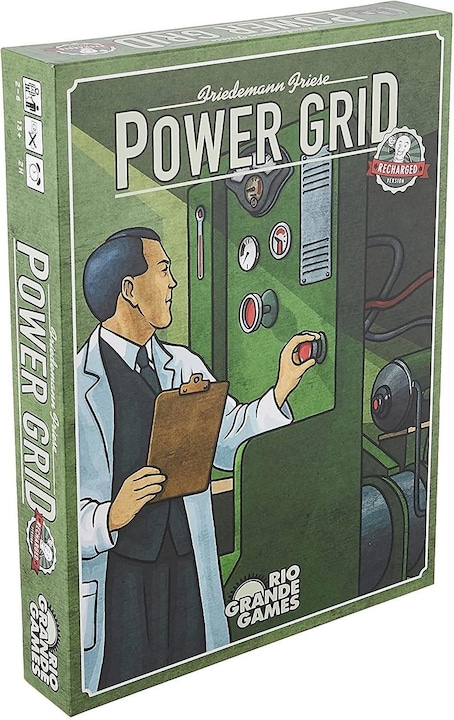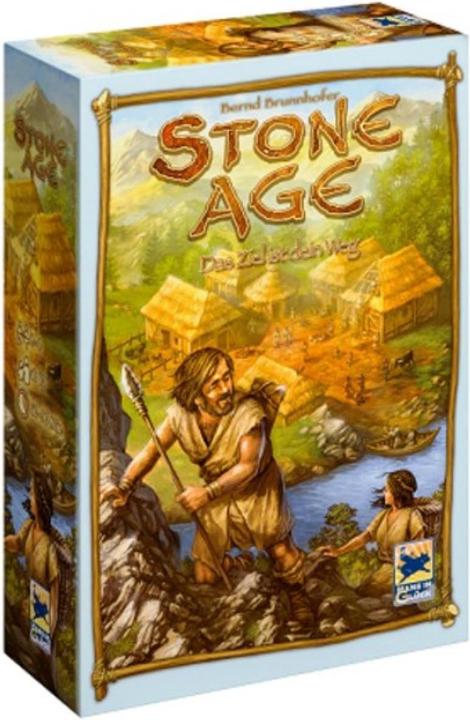

The art of board games: an insight into the world of game mechanics
Are all board games essentially the same? Not at all! A variety of mechanics determine how strategic and complex a board game is. I’m going to present ten of them to you here.
Every game is unique. On a basic level that’s true, but the wheel isn’t reinvented for every game. There are certain mechanics that repeat themselves. Perhaps you’ve heard the term Eurogame or Ameristyle (also known as Amitrash)? These generic terms will give you a good idea of what to expect. Eurogames are board games that focus more on strategy and planning. A theme is usually represented in an abstract and minimalist way. It’s less about luck and more about smart thinking. Ameristyle games, on the other hand, are full of stories and adventures. The game pieces are often beautiful plastic miniatures. Here, luck plays a bigger role and there’s often more action and tension between the players.
Youtuber ProZD demonstrates the two game principles in a very exaggerated way.
In addition to Eurogame and Ameristyle, there are specific mechanics. They define how you interact with the game or make decisions. In short, they set the rules for how the game’s played. I’ll show you ten of the most popular game mechanics, and for each one I’ll present you three games which implement that mechanic. Maybe one or the other will inspire you for your next game night.
Deck building
Deck building is where you build and improve your own deck of cards over the course of the game. The aim is to form efficient card combinations and draw the right cards at the right time. Examples include Dominion, a game in which you build a thriving empire, Star Realms, a fast-paced space card game and The Lost Ruins of Arnak, where mysterious islands are explored and hidden secrets are revealed.

Worker placement
This mechanic involves placing worker figures on certain spaces on the board to perform actions and collect resources. The challenge is to choose the best actions at the right time. Agricola is a game about life on a farm, where animals are bred and fields cultivated. In Lords of Waterdeep you have to complete missions and gain influence in a fantasy world. In Caylus you build a medieval town.
Area control/influence
This mechanic is about gaining and maintaining control over certain areas of the board. It’s often a battle for territory or areas of influence. Examples include Risk, a classic game about conquering the world. In Small World different fantasy races fight for limited space. In El Grande you fight for supremacy in the Spanish regions.
Roll-and-move
One of the oldest game mechanics is roll-and-move. In this mechanic, the luck of the dice is an essential part of winning. This mechanic is suitable for beginners, as you don’t have to make as many complex considerations. Examples include Monopoly, the well-known game about buying and selling real estate, The Settlers of Catan, which combines dice rolling with trade and strategy, and Talisman, an adventure game in which you gain control over a fantastic world.
Cooperative games
In cooperative games, everyone works together to achieve a common goal instead of competing against each other. Examples include Pandemic, a game in which you fight as a team against global epidemics. If you always play with the same group, I recommend the Legacy Version, which develops a story over several evenings. MicroMacro, in which you solve crime cases. Or Just One, where you have to guess words together.
Auction and bidding mechanisms
This mechanic revolves around bidding for resources or points to gain certain advantages in the game. It requires strategic thinking and the ability to anticipate the intentions of other players. Power Grid is a complex economic game in which you expand the energy supply and the network. In Ra you bid on valuable artifacts in ancient Egypt. Another example is Keyflower, an auction game in which you build up your village over four seasons.
Resource management
This involves collecting resources such as money or raw materials and using them efficiently. This mechanic requires planning and good timing. Complex interrelationships often have to be thought through, which is why this mechanism is aimed more at experienced people. In Terraforming Mars resources are used to make Mars habitable. In Le Havre you build and manage a port city. In Stone Age you have to collect wood, stone, gold and food to develop your village.
Hand management
The central element of hand management is the sensible use of your cards. It’s often about swapping your cards, discarding them in time and playing them at the right moment. An example of this mechanic is Race for the Galaxy, where you build an interstellar empire. Or 7 Wonders, which is a fast-paced civilization-building game, and The Great Dalmuti, a card game based on rapid changes of power and social hierarchy.
Drafting
Drafting is when players take turns choosing cards or other game elements from a common pool to improve their hand or skills. It requires thinking ahead and the ability to see through the strategy of others. With Sushi Go!, for example, you can put together delicious sushi combinations. In Blood Rage you build your Viking clan and then go into battle. Draftosaurus is a family-friendly game in which you draft dinosaurs and place them in your zoo to create the most attractive exhibit.
Puzzle and puzzle mechanisms
These mechanics require solving puzzles or recognising patterns. They often require strategic thinking and planning ahead. Azulis a game in which patterns are created from coloured tiles. My colleague Lorenz tested a travel version of this game.
Patchwork is also about materials: here players build a quilt by skilfully arranging puzzle pieces. Don’t forget Carcassonne, the classic game where landscapes are created by laying out cards.
Each of these mechanics offers unique challenges. There are no good or bad mechanics. You know best what you like playing and what you fancy in the moment. A quick and simple game of dice after a dinner with friends has just as much appeal as gigantic battles lasting several hours. My guide is designed to help you find the right game for the right moment.
I know this list isn’t complete and that there are many more mechanics. Is there one I should have included? Let me know in the comments
Header image: Ramon SchneiderRiding my motorbike makes me feel free, fishing brings out my inner hunter, using my camera gets me creative. I make my money messing around with toys all day.












